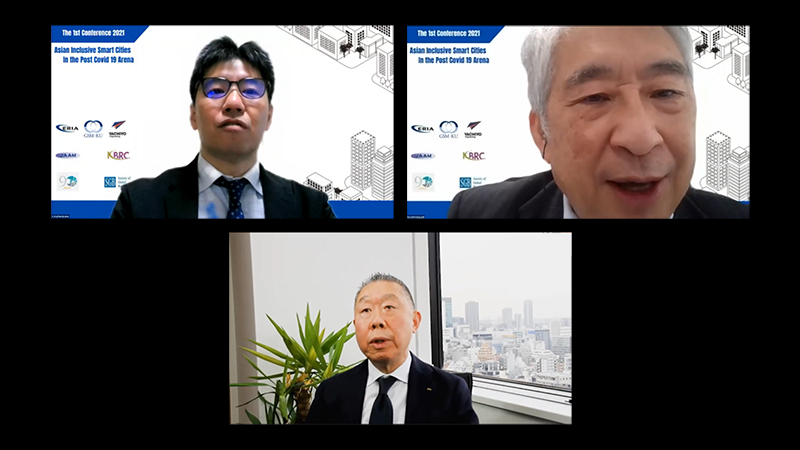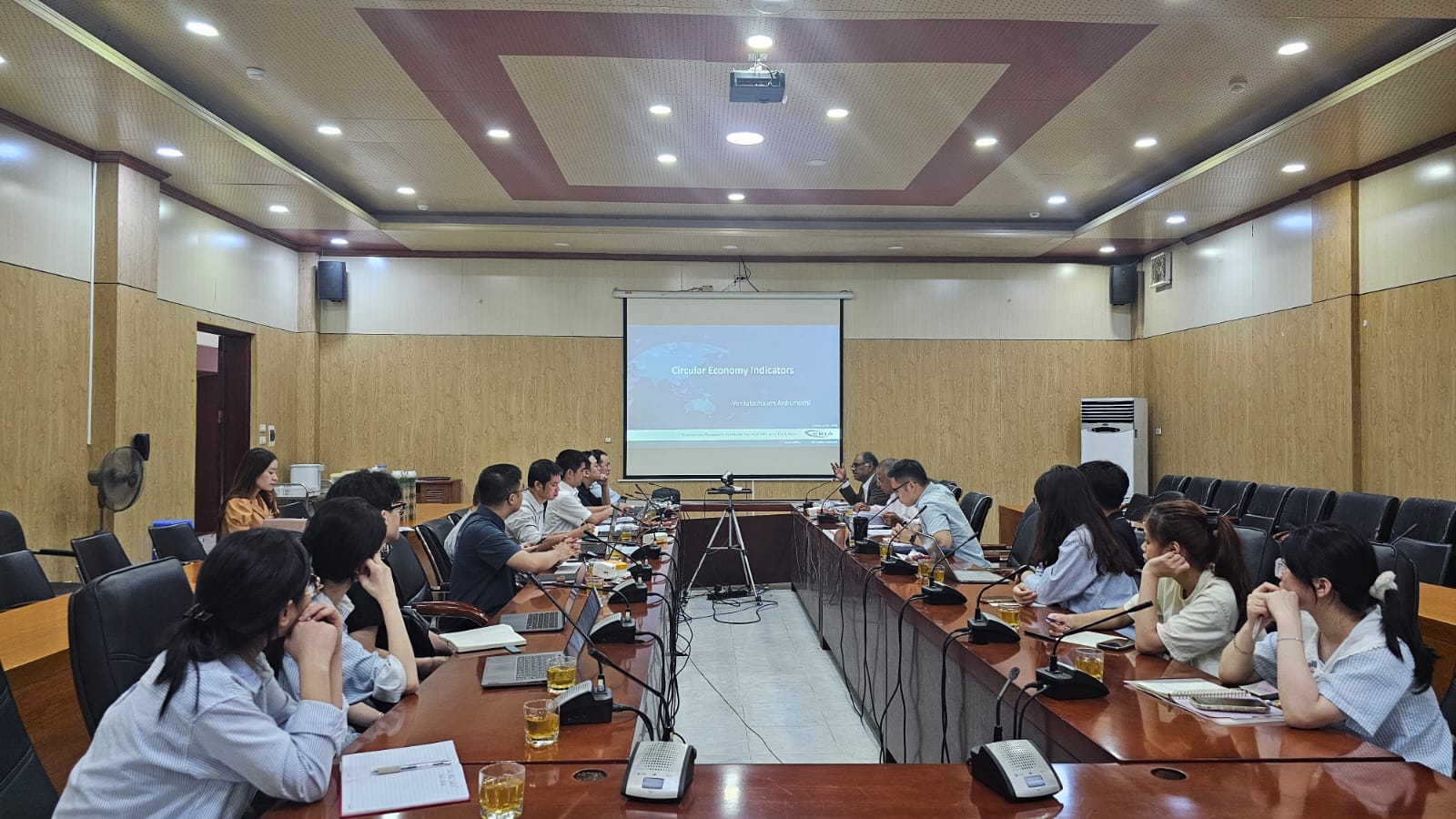Asian Inclusive Smart Cities in the post COVID-19 Arena
Date:
24 November 2021Category:
NewsTopics:
-Share Article:
Print Article:
Kyoto, 24 November 2021: The rapid speed of urbanization in Asia has led to a shift in the way people live and the way human settlements function, which needs to be addressed in order to create more environmentally sustainable cities. The governments of the region are thus turning to more sustainable approaches to city development, resulting in the eventual visioning of smart cities. Smart cities represent a drive for efficiency through interconnected technologies to share energy resources.
ERIA participated at the 1st Conference on Asian Inclusive Smart Cities in the Post COVID-19 Arena. The two-day event was held virtually and jointly organized by Graduate School of Management Kyoto University, Yachiyo Engineering, and ERIA. Mr Koji Hachiyama, the Chief Operating Officer (COO) of ERIA, delivered his opening remarks and Dr Venkatachalam Anbumozhi, Director of Research Strategy and Innovation was one of the speakers at the Panel Discussions session.
The representative of the three organizers gave opening remarks. Prof Kiyoshi Kobayashi from Kyoto University showed his gratitude to every institution and the academic society who supported the conference. He also thanked many young researchers who showed their interest on this topic. He also thanked all the members of the secretariat for the contributions to realize the symposium.
He emphasized on his remarks that looking at the situation of the pandemic, it is important for taking up the smart cities policy for the recovery of ASIA’s economics. The concept of smart cities utilizes the modern technology and recent innovation of the Internet of Things (IOT) and Information, Communications, and Technology (ICT). The most important concept of Smart Cities includes the social inclusion and people driven approaches.
Through the pre-recorded video, Dr Shigemitsu Demizu (CEO, Yachiyo Engineering Co. Ltd.) delivered his opening remarks. He expressed his gratitude to the secretariat and steering committee members, as well as the researchers who made the conference a success. This event was a part of the activities and outcomes of the International Mega-Infrastructure Management Policy Chair, which was a collaboration project between Yachiyo Engineering and the GSM KU.
Mr Koji Hachiyama delivered his opening remarks by introducing ERIA’s achievements and research activities. He then explained that smart cities are one of the concrete means to realize the concept of circular economy with the application of digital technologies and big data. In 2018, ASEAN has established the ASEAN Smart Cities Network (ASCN), which facilitate cooperation on smart cities development, catalyse bankable projects with the private sector, and secure support from ASEAN external partners.
Mr Hachiyama stated that there are several countries leading the smart cities movement in East Asia Summit, including Singapore, South Korea, Malaysia, India, and China. He also mentioned that ERIA is increasing its efforts to support smart city initiatives in the region through research and capacity building. In 2019, ERIA launched a regional study on Realizing Smart Cities, with the objective of examining how cities can embark into a smart city program and what could be costs and benefits. This study performed the technology needs, gap analysis, and financial models for Chiangmai (Thailand), Johar Baru (Malaysia), Jakarta (Indonesia) and Lunag Prabang (Lao PDR).
In promoting smart cities, he pointed out that the ability of Public Private Partnership (PPP) coordination and the capacity to implement the projects efficiently are important and are required in conventional town management. Furthermore, the ability of design and planning is required to implement new services using big data analytics. It is crucial to organize such requirements academically, consider the business model, and develop human resources with new knowledge and accumulated experience. Not only the development of smart infrastructure with emphasis on outcomes and the improvement of necessary information and data from the public point of view, but also a human-centric (citizen-driven) town management based on the actual needs of citizens and residents is very important.
He concluded his remarks by extending a warm welcome to the distinguished participants and hoped that the event would produce insightful discussions and articulate important building blocks of inclusive smart cities in Asia.
Dr. Venkatachalam Anbumozhi, Director of Research Strategy and Innovation was one of the speakers at the Panel Discussions session with the title of Inclusive Smart Cities: Prospect and Initiatives. He introduced the work of ERIA on Realizing Smart Cities Project, with technology and financing assessments, as well as key performance indicators in three cities. This work is supporting the ASEAN Smart Cities Network (ASCN).
He then explained that there are many definitions of a smart city. From the developing countries perspective, a smart city can be defined as a city that links the integration of physical capital, social capital, information and technology (IT), as well as business infrastructure, in order to enhance the quality of life of its citizens. The goal of smart cities academically speaking is to get the maximum value of the larger city and urban planning by understanding how each smart system within the city interfaces and is used. During the pandemic, new governance systems, where local governments are empowered to be more autonomous in making decisions, the adoption of technology within financial systems is required as part of the smart cities movement so that city governments become much more pragmatic and transformative in the post COVID era.
Presentation by Dr Venkatachalam Anbumozhi
DrVenkatachalamAnbumozhi_SmartCityasanExtendedEnterpriseModel by Economic Research Institute for ASEAN and East Asia on Scribd








